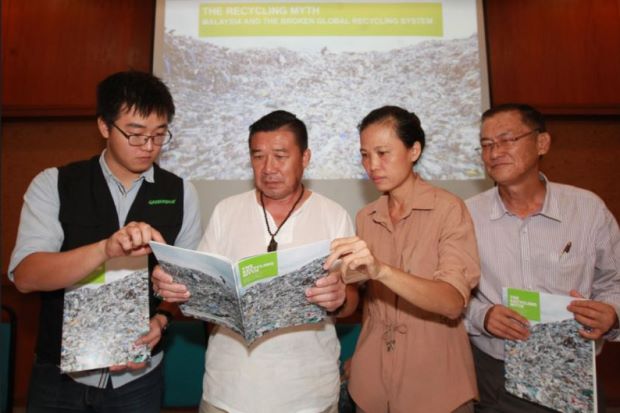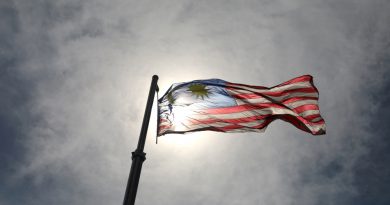Greenpeace Malaysia: Country has become the world’s rubbish bin
KUALA LUMPUR: The US, Japan and the Britain are the three biggest plastic waste exporters to Malaysia, accounting for 53% of the 754,000 tonnes of plastic waste the country imported from January to July 2018.
According to data from the National Solid Waste Management Department cited by Greenpeace Malaysia, the US is the highest plastic waste exporter.
This is followed by Japan, Britain, Germany, Hong Kong, Australia, Belgium, Spain, Estonia and France.
Greenpeace Malaysia revealed the data in its “The Recycling Myth” report uncovering regulation violations in plastic waste disposal.
This follows reports on illegal plastic waste recycling factories mushrooming in Jenjarom in Selangor, Johor and Penang.
“Malaysia has become the world’s rubbish bin,” Greenpeace Malaysia public and engagement campaigner Heng Kiah Chun said during the launch of the report on Tuesday (Nov 27).
Working with Kuala Langat Environmental Protection Association (KLEPA), Greenpeace Malaysia’s investigation of plastic recycling factories in Kuala Langat found plastic waste from over 19 countries.
The report found that between January to July, Malaysia imported 754,000 tonnes of plastic, equivalent to approximately 100,000 large elephants.
The total value of the nation’s plastic import is over RM483mil.
However, only 9% of this plastic waste are clean plastic that can be recycled, Greenpeace said.
It said based on global data, the remaining 12% of plastic waste are incinerated and 79% end up in landfills or dumped in natural environment.
Housing and Local Government Minister Zuraida Kamaruddin had said in Parliament that plastic waste processing business is a RM30bil industry that cannot be ignored.
Kuala Langat residents, who are in the centre of the fight against over
50 illegal plastic recycling centres in their area, say this value comes at the cost of their health.
“We are the ones bearing the environmental risk of these plastic waste,” said resident Pua Lay Ting.
“Even if we avoid the dumping grounds and install water filters, we cannot avoid the acid smell in the air,” said Pua, who is also a representative with environmental NGO Peka (Pertubuhan Pelindung Khazanah Alam Malaysia).
KLEPA president Tan Ching Hin said the illegal plastic recycling factories are producing solid waste, and its water pollution has forced fish and prawn farms to stop operations.
Tan said villagers are developing chronic respiratory diseases from the open burning of unrecyclable waste.
He said these factories, mostly illegal facilities owned by Chinese companies, mainly hire foreign workers.
He added that its environmental impact will reduce the value of property in the area as well as affect local businesses.
“It is shameful that we have become the dumping ground of the word,” Tan said.
In its report, Greenpeace Malaysia welcomes the government’s decision to permanently ban the import of plastic waste but urge for stronger policies to also control the import of clean plastic waste.
“This is not a Malaysian problem, it is a global problem,” Heng said.
Greenpeace Malaysia recommends that instead of fixing the plastic waste imports regulations, the government should encourage domestic recycling industry and promote circular economy.
On a global scale, Greenpeace Malaysia said all countries should legislate policies to end the use of single-use plastics.
Source: TheStar




